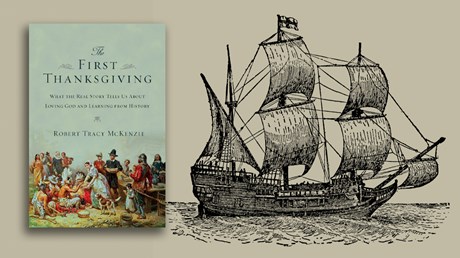An evangelical historian teaches us how to think critically about the heroes of our past.

In 1623, Plymouth Colony Governor William Bradford proclaimed the first Thanksgiving. "The great Father," he declared, "has given us this year an abundant harvest…and granted us freedom to worship God according to the dictates of our own conscience." He directed the Pilgrims to gather that November, "the third year since ye Pilgrims landed on ye Plymouth Rock, there to listen to ye Pastor and render Thanksgiving to ye Almighty God for all his blessings."
Except Bradford didn't write that. Someone—we don't know who—fabricated this "proclamation" in the late 20th century. (And the "first Thanksgiving" actually happened in 1621, anyway.) Yet quotes from Bradford's "proclamation" circulate around the internet and appear in books such as 48 Liberal Lies About American History and Sermon Outlines for Busy Pastors. Surviving records from the Pilgrims actually tell us little about the "first Thanksgiving," tempting folks to fill in details where they don't exist. In this, the Pilgrims join a long line of historical characters that Americans—and especially some evangelicals—have attempted to form in their own image.
In The First Thanksgiving: What the Real Story Tells Us About Loving God and Learning from History, Robert Tracy McKenzie takes the historical challenges posed by the Pilgrims as his starting point. I cannot recall ever reading a book quite like The First Thanksgiving. It is an entertaining retelling of a seminal moment in American history—and a remarkable reflection on how Christians should handle history in general.
Crisis Point
American evangelicals seem to have reached a crisis point over the study of …
Source: Christianity Today Most Read